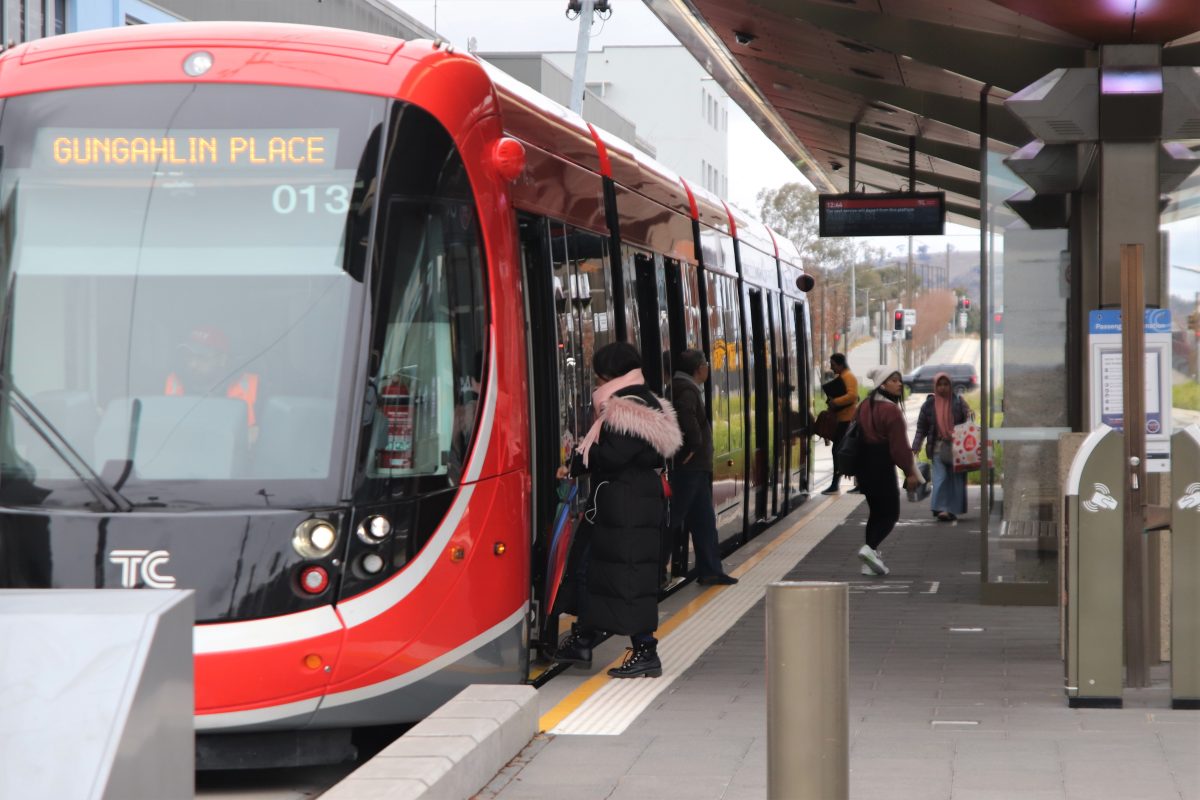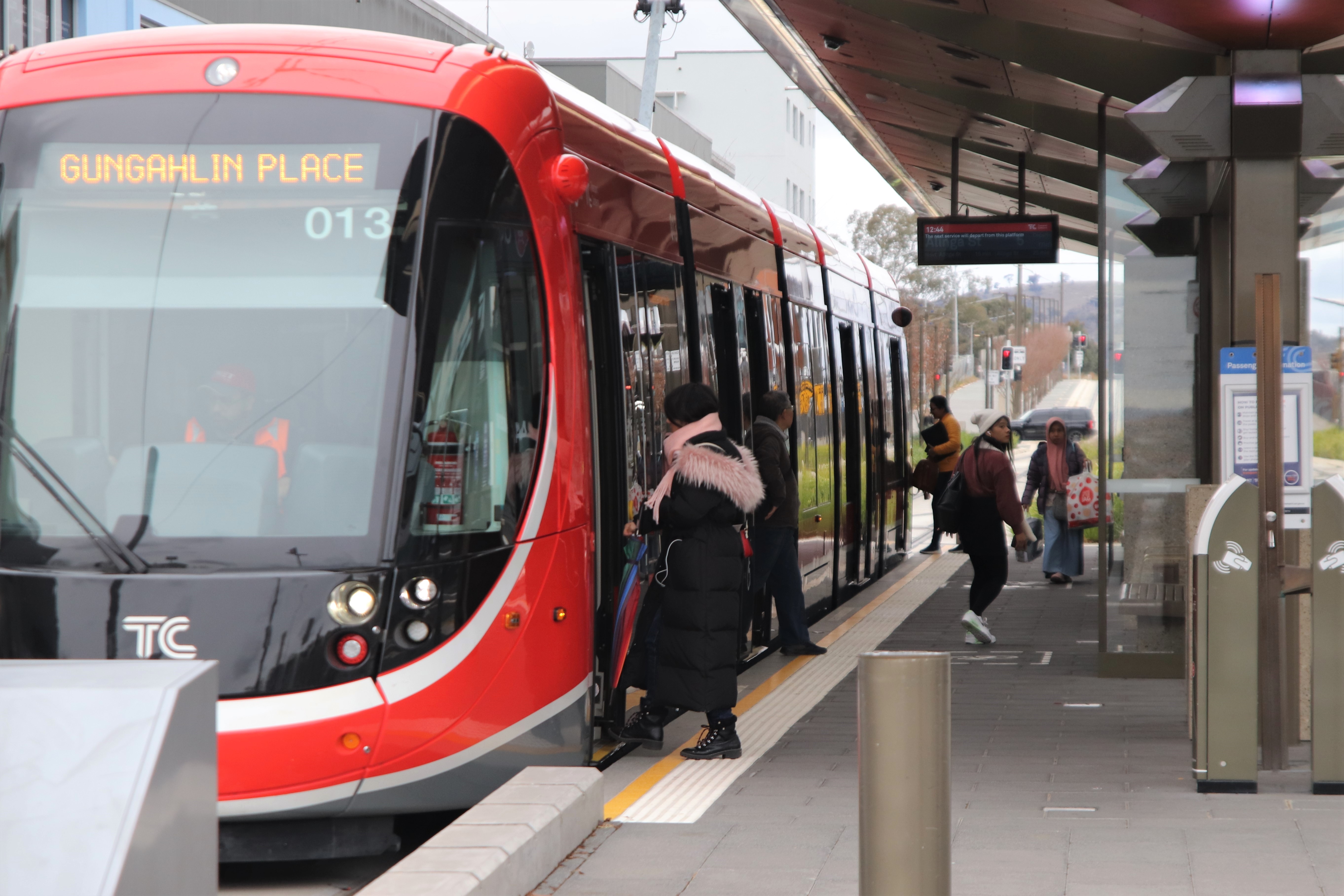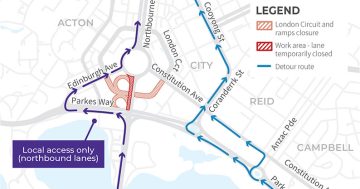
The Auditor-General wants the ACT Government to undertake a full economic analysis of light rail to Woden, saying it would give a better picture of the true cost of the project. Photo: Damien Larkins.
The government paid “insufficient attention” to an economic analysis of Stage 2A of light rail and should now examine the route from the city to Woden as a whole to get a better picture of the costs, the Auditor-General has warned.
ACT Auditor-General Michael Harris said he believed the total cost for the next stage to Commonwealth Park – $162 million – was, in actual fact, likely to be much greater.
But the ACT Government rejected any suggestion they had knowingly underestimated the costs of the light rail project.
An audit report released in September last year found the costs of light rail Stage 2A may have been underestimated and its economic benefits overstated.
On Thursday (12 May), Mr Harris said he feared “there were costs that were not included in the analysis which could have been reasonably foreseen”.
Some of these included the requirement for wire-free running vehicles and a need to retrofit some light rail vehicles.
The audit also found some of the benefits of light rail had been overestimated.

Auditor-General Michael Harris said he was concerned insufficient attention had been paid to the economic analysis of Stage 2A of the light rail. Photo: File.
The Auditor-General said he was not trying to suggest the analysis purposefully hid information. Instead, he said the analysis showed “a lack of professionalism on the part of the people who put [it] together” to which “insufficient, or a lack of attention” had been paid.
He suggested this may have been because Stage 2A was viewed as only a small part of the puzzle.
Last year’s audit found Major Projects Canberra – the agency which prepared the business case – did not request further information from the consultant about their methodology and data.
“I would’ve expected a government agency to have embarked on some form of questioning of their consultants,” Mr Harris explained.
“We’re not saying they have to pay someone else to validate the information they were given by the consultant … we’re saying it’s incumbent upon them to do their own questioning.”
But chief projects officer of Major Projects Canberra Duncan Edghill argued the team who completed the economic analysis performed well.
Mr Edghill said the same team which completed the business case had also completed the business case for Stage 1, which had been “on the conservative side”.
The government has already rejected a suggestion it prepare a fresh business case for Stage 2A of light rail in its response to the audit.
Mr Harris said it was now his view that an economic analysis of the entire light rail route between the city and Woden would better capture the project’s true costs and benefits rather than assessing smaller sections in isolation.
However, he acknowledged this would be “a timely exercise to undertake”.
At the hearing, two experts presented opposing views on the light rail economic analysis.
Honorary associate professor at the Australian National University Crawford School of Public Policy Dr Leo Dobes described the Stage 2A analysis as “very poor” as it had failed to put forward alternatives.
He accused the government of having an “ideological preference” for a tram/light rail and said they should have instead considered alternatives, such as an O-Bahn system.
Like a tramway, an O-Bahn is a guided busway where buses roll along concrete tracks. However, the vehicles can also leave the O-Bahn and become an ordinary bus running along any other route.
But senior lecturer in economics and behavioural science at the University of Canberra Dr John Hawkins said it was important the government viewed the benefits of light rail as long-term and would therefore benefit future generations as well as current ones.
He said it was likely the benefits had been understated in the government’s analysis.
Original Article published by Lottie Twyford on Riotact.






